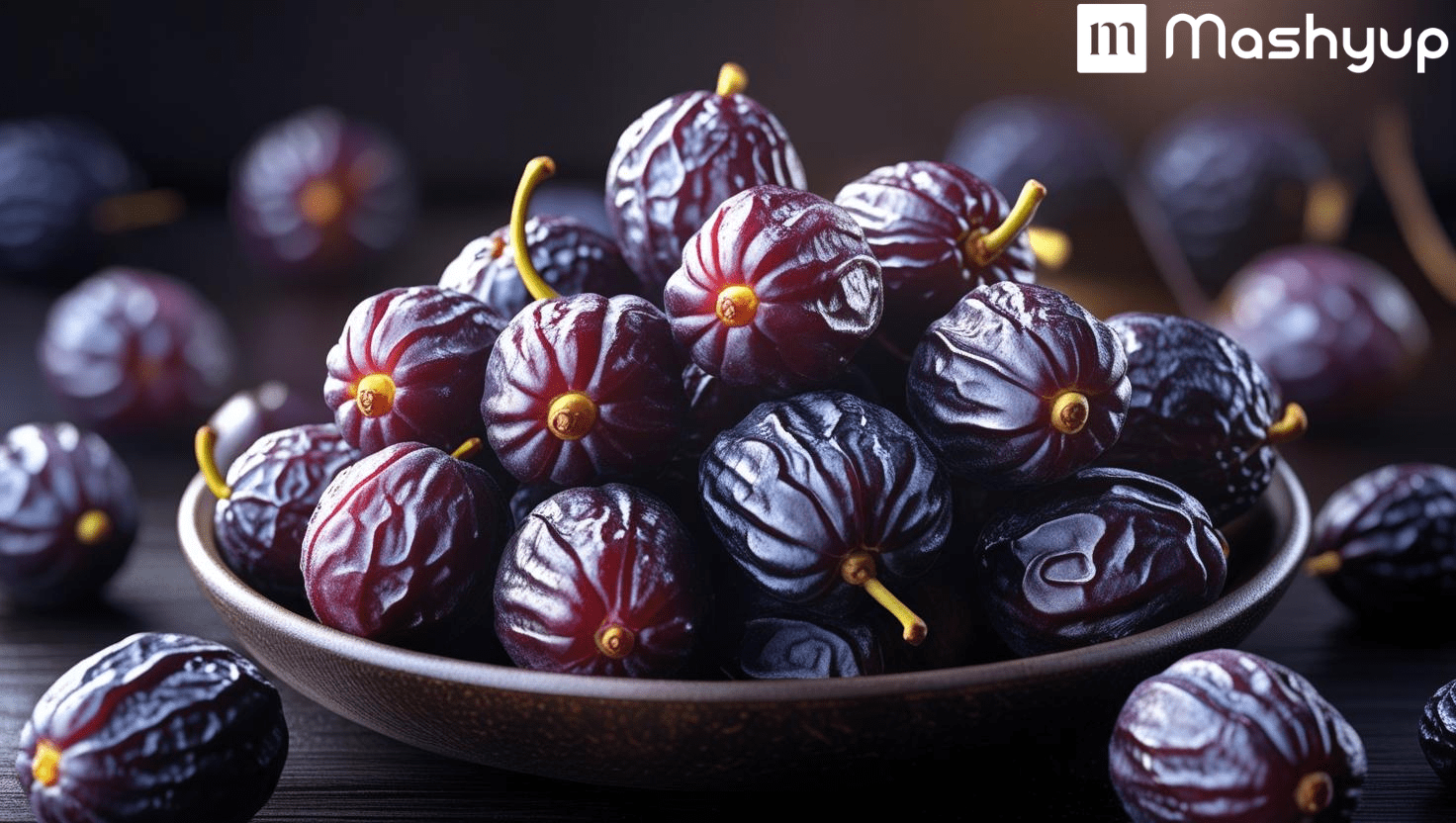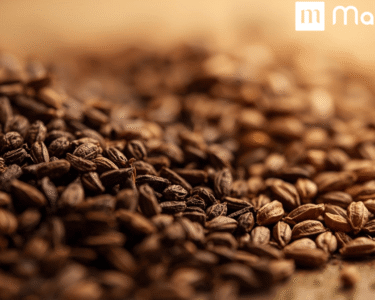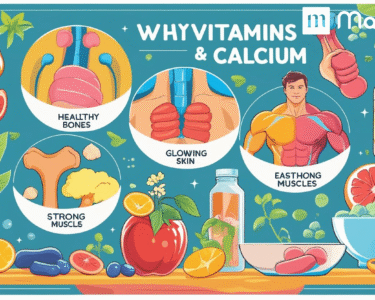Has anyone ever heard of a fruit that is small, wrinkled, and not very good looking yet packed with health benefits? Introducing the modest Prune, which is also called Sukha Aloo Bukhara in Hindi.
Prunes have earned their place as one of nature’s finest dry fruits for its ability to improve digestion, strengthen bones, and improve skin. Everything you need to know about prunes will be covered in this blog, including their nutritional worth, history, uses, and even some delectable recipes.
What Are Prunes?
Prunes are dried plums, which come from Ethe uropean plum variety. The process of generation of prunes involves drying of the fresh plums which under controlled conditions transform into sticky, chewy and sweet tart prunes. These prunes become a natural treat with immense health value.
In India, prunes are also known as Sukha Aloo Bukhara which unlike raisins or dates not very popular. But because their immense health benefits and sweet taste, they are slowly gaining popularity.
Diving into Pages of History
Prunes have as much as 2000 years old history. They Originated from middle east and Mediterranean regions, and were famous among romans for their laxative properties. Eventually, prunes were introduced in countries like Europe and United States, where large scale production begins.
Today, California alone manages almost 70% of the prunes production.
Nutritional Chart of Prunes
Prunes are naturally abundant in lots of nutrients. Let’s learn about their nutritional value according to 100g of prunes:
| Calories | 240 kcal |
| Protein | 2.2 g |
| Sugar | 38 g |
| Carbohydrates | 64 g |
| Calcium | 43 mg |
| Potassium | 732 mg |
| Dietary Fiber | 7 g |
| Fat | 0.4 g |
| Iron | 0.9mg |
| Magnesium | 41 mg |
| Vitamin K | 59.5 mcg |
| Vitamin A | 781 IU |
| Antioxidants | Rich in phenolic compounds |
Health Benefits of Prunes
Support Bone health
To your surprise, prunes are excellent for your bones as they are brimming with the goodness of vitamin K, boron, and magnesium. These vitamins and minerals improve bone density and also reduce the risk of osteoporosis in post menopausal women.
Aids Digestive Health
Prunes naturally have laxative effect, which means they are rich in insoluble fiber and sorbitol which help soften the tools and improve bowel movement. Hence, prunes are highly recommended for people suffering from constipation.
Rich in Antioxidants
The drying process fills prunes with lots of antioxidants, especially phenolic compounds that neutralizes free radicals. The antioxidants lowers the inflammation while reduce the risk of chronic diseases like cancer and heart disease.
Gives you Healthy Skin
Prunes are filled with vitamin A and antioxidants, which help in maintaining skin elasticity, reduce wrinkles and protect you against UV damage. Consuming prunes regularly will hence give you healthier and glowing skin.
Improves Vision
The presence of vitamin A also helps in maintaining healthy eyesight. Regular consumption of prunes may even prevent conditions like night blindness, cataracts, and macular degeneration.
Boost Immunity
Prunes have lots of vitamin C content in it along with iron and antioxidants. These vitamins and minerals help in strengthening of your immune system and help your body fight with infections more effectively.
Ways to Consume Prunes for Maximum Benefits
Soak them Overnight
Prunes, when soaked overnight, often makes them soft. These soft prunes are not only tastier to eat but also becomes easy to digest. Drinking that water too flushes out all the toxins from the body.
Eat them as it is
Snack them straight of the pack and eat them as it is. Eating 4 to 6 pieces every day can save you from an upset stomach because of the high fiber content.
Add it to Smoothies
To make your smoothie taste sweet, add soaked prunes. It will work as a natural sweeter while also providing a boost of fiber.
Mix them into Salads or Oatmeal
Add chopped prunes to your salads/oatmeal/yogurt bowl to enhance the flavors and add a chewy texture to it.
Used for Baking
Chop prunes and add them to regular muffins, cakes, cookies, and granola bars. This would add moisture to your baked products while also adding more sweetness to them.
Some Delectable Recipes of Prunes
Let’s learn about two simple prune recipes that taste deliciously good:
Prune and Spinach Salad
Mix together 1 cup of spinach leaves, 6 to 8 sliced pitted prunes, and ¼ cup of walnuts. To this add dressing containing olive oil, lemon juice, honey, salt, and pepper and get yourself a delicious bowl of healthy and flavorful salad.
Tip: For a more enhanced flavor you can add fatta cheese as well.
Prune Energy Balls
Blend 1 cup of pitted prunes, ½ cup of almonds, 2 tbsp of chia seeds, and 1 tbsp of honey in a food processor, until everything blends together and becomes sticky. Then take an equal quantity of these mixture and roll them into small balls. Refrigerate and enjoy them as healthy snacks.
Comparison of Prunes with Other Superior Dry Fruits
| Dry Fruit | Best Known For | Fiber (per 100 g) | Unique Benefits |
| Prunes | Improves digestion and enhances bone strength | 7 g | Naturally laxative in nature |
| Dates | Energy Booster | 6.7 g | Have high iron content |
| Figs | Good for Gut Health | 9.8 g | Natural sugar replacement |
| Raisins | Best for Skin and Eyes | 3.7 g | Rich in Antioxidants |
Prunes may not be much appealing, but they are packed with the power of prevention, protection, and nourishment in every bite. Prunes are naturally sweet snack which can help you with digestion, skin care, bone strength and more.
Further, they are :
- Beneficial for all age groups
- Rich in vital minerals and vitamins
- Sweet and tasty in nature
- Very versatile
Therefore, the next time you reach for a snack, pick some prunes rather than chips. Your taste senses and your body will thank you for it.






